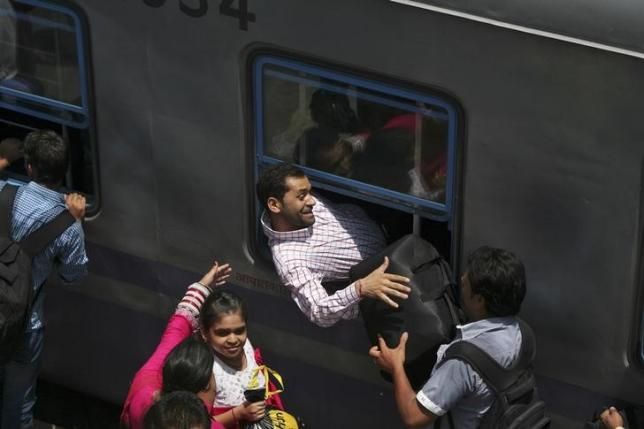
Experts say the Swiss Challenge may be new to India but has found statutory recognition under various legal frameworks
The Union cabinet last month gave its approval for redevelopment of Indian Railways' 400 best stations through an innovative public-private partnership model, the Swiss Challenge, after similar attempts by the United Progressive Alliance regime failed.
Infrastructure projects are usually conceptualised by the government, and the private sector comes in during implementation.
Sometimes, the private sector itself conceptualises the project and submits unsolicited proposals for development.
The government is handicapped in evaluating these projects due to the lack of competition and transparency.
The most common system governments use to manage such proposals is the Swiss Challenge.
The government screens out unnecessary proposals and the process allows proponents to test concepts without putting large resources into development.
The government then invites counter bids through an open tender and the originator is asked to match the best bid.
If matched, the project is awarded to the originator, otherwise the best bidder gets the project.
According to EY Partner (infrastructure and PPP) Abhaya Agarwal, the method is useful where the government has limited technical capacity to develop projects. Besides, it also promotes innovation and incentivises new ideas.
However, as a downside, there are risks related to transparency and competition.
Also, the legal validity of using Swiss Challenge comes under question when a counter-proposal contains different specifications than the original proposal.
There is also the risk of bidding asymmetry when the time given to bidders to prepare counter-proposals is different from the time taken by the originator.
"The Swiss Challenge is generally adopted for new projects and those involving innovative technology, where the government does not have a presence," says Agarwal.
Asked if it is a wise move to choose this method for station development, he says: "Railway redevelopment projects involve issues related to land and approvals.
"The success of the Swiss Challenge would depend on the work that the government would do for the resolution of those issues."
Deloitte Senior Director Vishwas Udgirkar says the Swiss Challenge is not used for run-of-the-mill projects.
"The government should ensure that rail side development gets adequate importance and that projects should not turn into real estate grab," he says.
So, has the rail ministry taken care to draw up a transparent framework for the process to be adopted?
So far, yes.
The ministry has identified the 400 A1- and A-category stations (classification based on annual revenue earned) for redevelopment, and finalised the bidding procedure.
It knows what facilities the stations will offer and has worked out the eligibility criterion for bidders.
The business plan submitted would have to be designed in a way that ensures revenue realised from real estate development is sufficient to cover the cost of station redevelopment.
In order to ensure serious proposals, parties will submit an earnest amount with their proposals.
Applicants will need to have a minimum net worth of Rs 50 crore (Rs 500 million).
The onus of securing statutory approvals will be on the developer.
All proposals will be examined for feasibility by a Standing Technical Committee followed by a Standing Financial Committee and finally a committee of experts.
The proponent of the selected idea would then be asked to submit a detailed proposal.
This proposal will be uploaded on the ministry's website along with tender documents inviting counter bids.
Experts say the Swiss Challenge may be new to India but has found statutory recognition under various legal frameworks.
They point out at least two instances where Swiss Challenge has been successfully implemented despite challenges.
"The Punjab government-awarded Quila Nabha Project involving conservation and reuse of a historical fort.
"A challenge to its award was struck down by the High Court of Punjab & Haryana.
"Also, the Supreme Court, in Ravi Development versus Shree Krishna Prathistan, has clearly given the government a go-ahead for using the Swiss Challenge," Agarwal says.










